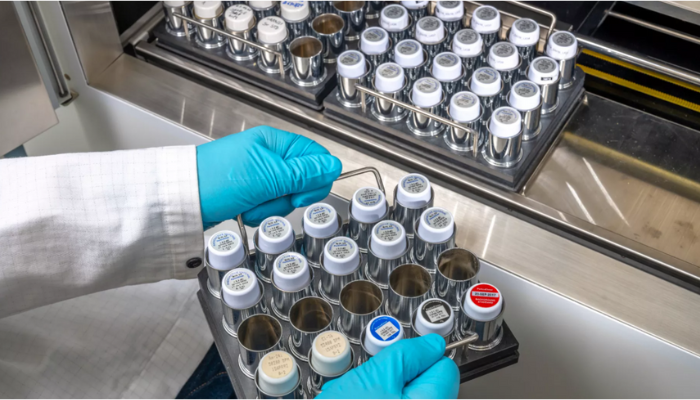The European Union’s top pharmaceutical agencies have issued a warning over growing vulnerabilities in the bloc’s supply of radiopharmaceuticals, citing critical dependencies on Russia and the United States for raw materials and inefficient cross-border transport systems.
In a joint statement released on Monday, the European Medicines Agency (EMA) and the Heads of Medicines Agencies (HMA) stressed that merely expanding production capacity would not be enough to meet rising demand. Instead, they urged EU policymakers to address structural weaknesses in sourcing and delivery.
Strategic Materials Under Scrutiny
At the heart of the issue lies Europe’s reliance on High-Assay Low-Enriched Uranium (HALEU), a key material used in the production of medical isotopes for diagnosing and treating diseases such as cancer.
Currently, Russia’s state-owned company Tenex remains the only commercial supplier capable of delivering HALEU at scale. Although the United States resumed domestic HALEU production in late 2023, it has yet to reach full-scale industrial output.
“Securing raw materials like HALEU is not just a health priority—it’s a strategic necessity,” the EMA report states.
Complex Transport Regulations
Transporting radiopharmaceuticals across Europe remains a logistical challenge. Regulatory inconsistencies between member states, outdated infrastructure, and fragmented certification systems are causing significant delays in the delivery of time-sensitive, radioactive medicines.
The EMA has proposed EU-wide certification standards for transport containers and mutual recognition of national transport regulations to streamline the movement of nuclear medical supplies.
Environmental Rules Pose Additional Challenges
The EU is also considering a ban on lead-based shielding in transport containers, citing environmental and public health concerns. Lead is currently the standard material used to protect against radiation exposure during transport.
However, the EMA cautioned that banning lead without identifying viable alternatives could severely disrupt radiopharmaceutical supply chains, putting patient care at risk.
EU Initiatives and Long-Term Solutions
To strengthen supply chain resilience, the EMA supports several initiatives:
- European Radioisotope Valley Initiative (ERVI): Focused on increasing domestic isotope production.
- SAMIRA (Strategic Agenda for Medical Applications of Ionising Radiation): Part of the EU’s Beating Cancer Plan, aiming to boost radiopharmaceutical infrastructure and research.
EU member states are being encouraged to map their entire supply chains—from raw material sourcing to final delivery—and align their national strategies within a cohesive EU framework.
Geopolitical and Public Health Implications
The EMA’s recommendations come at a time when Europe is reassessing the strategic value of critical medicines. Radiopharmaceuticals are not only essential for diagnosing and treating serious illnesses but also considered vital for maintaining EU health sovereignty in an increasingly unstable global environment.
“Europe must reduce its exposure to external shocks,” the report concludes. “Only through coordinated action can we ensure a stable and independent supply of nuclear medicines for the future.”

